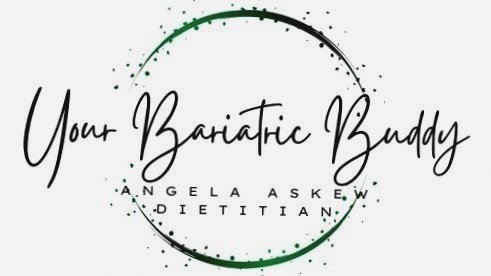FLUID PHASE DIET- One week post surgery
After surgery you are required to follow a fluid diet for 1 week. Waiting to introduce foods to your new stomach is vital to allow swelling to subside and to give your body a chance to adapt.
Sipping appropriate types of fluids VERY SLOWLY will allow you to listen to your new stomach to recognise its new limitations and to avoid unwanted symptoms such as nausea, pain and vomiting.
Drinking adequate fluids is very important in preventing dehydration post-surgery and to prevent constipation. Your fluid target post-surgery is at least 1-1.5 litres per day.
Following the guidelines below will help to minimise side effects and promote healing.
- Anything consumed in the first week must be in fluid form.
- Fluids must be smooth with no lumps
- No fizzy drinks as gas builds up in the small stomach and causes pain
- No alcohol
- Consume a variety of fluids including water and nourishing fluids
- Sip, sip, sip and stop when you feel discomfort
Suitable fluids include;
- Optifast, Optislim shakes. These are the most nourishing fluids
- Protein drinks including Beneprotein or other similar whey protein based supplements.( Beneprotein is available online from the Online Pharmacy).
- Plain water (water may be better tolerated when diluted with diet cordial)
- Diet cordial
- Diluted unsweetened fruit juices
- Vegetables juice
- Milk (reduced fat varieties are better tolerated)
- Tea, coffee
- Drinking yoghurt
When following a fluid only diet it can be difficult to obtain enough protein and overall nutrition to promote wound healing, prevent loss of muscle mass and boost your immune system. It is therefore important to include high protein beverages such as commercial protein drinks and shakes, and other milk based drinks to reach your target requirements. Including soups that contain chicken and other meats, chick -
Things to AVOID
- Carbonated drinks
- Cup of soups (as they contain high amounts of sodium and very little protein)
- Highly acidic drinks (orange or grapefruit juice)
- Vegetables soups that contain no protein (if you are using pumpkin soups for example it is a good idea to add a protein source such as pureed lentils or flavourless protein powders to make these foods more nourishing
- High sugar flavoured milks ( Some products such as chocolate milks may cause ‘Dumping Syndrome ‘in some people where they experience symptoms such as nausea and diarrhoea)
peas, kidney beans, split pea or lentils can also help you get in more daily protein.
Fibre Supplements
When following a fluid diet it is difficult to get enough fibre as well as fluids to maintain bowel health. It is recommended that you add Benefibre® to either your shakes or water. Benefibre® is a tasteless soluble fibre supplement that is gentle on the stomach that can be mixed into hot or cold beverages without forming lumps. Benefibre is available from pharmacies and supermarkets. Prune juice 50ml twice per day may also help prevent constipation, however if you are having significant difficulty opening your bowel Coloxyl or Movicol may be appropriate.
Multi-vitamin and mineral supplements
Your surgeon and dietitian have recommended you commence a chewable multi-vitamin supplement at day 7 post-surgery. BN multi-vitamins® have been specifically designed to provide the adequate levels of micronutrients such as folate, iron, zinc and copper to maintain optimal health post-surgery.
Prior to surgery your stomach provided the correct conditions for absorption of minerals such as iron and calcium. Due to the permanent changes to your stomach you may also need to take a daily calcium supplement. Calcium citrate e.g. Critical® is recommended as it is easier to absorb. Choosing a calcium supplement with additional Vitamin D is also beneficial for bone health.
Suggested meal plan for the Fluid Phase Diet: ONE WEEK
This is a guide only showing the types of foods and drinks you may choose. The quantities of these foods/beverages is dependent on listening to your new stomach. Remember to sip slowly throughout the day and stop when you feel discomfort or fullness.
Remember to sip water all through the day
Breakfast
Commercial protein supplement shake such as Optifast
Or
200g tub of smooth drinking yoghurt
Morning Tea
Glass of low fat milk with additional protein powder
Lunch
Fruit and milk smoothie with additional fibre and protein supplement
Or
Small bowl ~1/2cup of home-made smooth pureed soup such as Lentil and Sweet potato.
Afternoon Tea
Warm Milo with reduced fat milk
Dinner
Small bowl of home-made pureed smooth soup such as Tomato and Beef soup
Or
Commercial protein supplement shake
Supper
Commercial protein supplement shake
Or
200g smooth natural yoghurt
